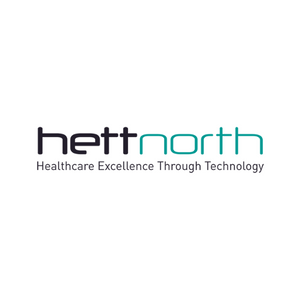In the ever-evolving healthcare landscape, the rapid adoption of digital technologies is revolutionising the way we deliver care. This transformation is not only impacting the way patients interact with the healthcare system but also the skills and competencies required of healthcare professionals. As the NHS embraces the digital future, it is crucial to prepare the workforce to adapt and thrive in this new era.
Here are five key steps the NHS can take to ensure their workforce is equipped for the digital future:
1. Identify and Address Skills Gaps
A comprehensive skills assessment is essential to identify the specific gaps in digital literacy and technical expertise within the healthcare workforce. This assessment should consider the current and future needs of the NHS, taking into account the implementation of new digital technologies and the evolving patient expectations.
2. Develop and Implement Targeted Training Programmes
Once the skills gaps have been identified, the NHS human resources manager should work closely with clinical leaders and educators to develop targeted training programs that address these specific needs. These programmes should be tailored to the different roles and levels of experience within the workforce, ensuring that all healthcare professionals are equipped with the necessary skills to utilise digital technologies effectively.
3. Foster a Culture of Digital Learning
To create a workforce that is comfortable and confident in using digital technologies, the NHS should foster a culture of continuous learning and innovation. This can be achieved through initiatives such as:
- Regular training updates: Ensure that training programmes are regularly updated to reflect the latest advancements in digital healthcare technologies.
- Mentorship and coaching: Encourage mentorship and coaching opportunities between experienced and newer staff to share knowledge and expertise.
- Promoting a learning mindset: Cultivate a culture where staff feel encouraged to ask questions, explore new technologies, and share their learning experiences.
4. Leverage Technology to Enhance Learning
Technology can play a significant role in enhancing the accessibility and effectiveness of digital training programmes. The NHS should explore the use of e-learning platforms, online modules, and simulation-based training to provide flexible and engaging learning opportunities for staff.
5. Encourage Cross-Disciplinary Collaboration
The digital transformation of healthcare is not confined to specific departments or specialties. To fully reap the benefits of digital technologies, they should encourage cross-disciplinary collaboration and knowledge sharing across the entire healthcare workforce. This can be achieved through initiatives such as:
- Joint training programmes: Develop training programs that bring together healthcare professionals from different disciplines to learn about and apply digital technologies in a collaborative setting.
- Cross-functional teams: Encourage the formation of cross-functional teams to work on digital projects, fostering knowledge exchange and collaboration across different specialties.
- Shared learning spaces: Create shared learning spaces where healthcare professionals can come together to discuss and share digital knowledge and experiences.
By taking these five steps, the NHS can play a critical role in preparing the healthcare workforce for the digital future. This will enable the NHS to deliver high-quality, patient-centred care that is seamlessly integrated with digital technologies, ensuring that the NHS remains at the forefront of innovation and patient experience.
By implementing these strategies, the NHS can empower the healthcare workforce to embrace the digital future and deliver exceptional care to patients.
%20(1).png?width=500&height=58&name=HETT%20insights%20logo%20RGB-04%20(1)%20(1).png)


